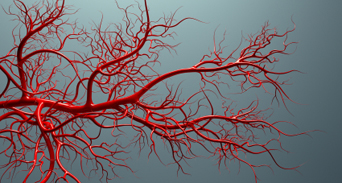
Vascularization and angiogenesis – processes that build new blood vessel “supply lines” – promote tumor growth and offer promising targets for cancer therapies.
Sekhar Konjeti, Ph.D., and Michael Freeman, Ph.D., collaborated with Ela Knapik, M.D., to demonstrate that the metabolic enzyme ENOX1 plays a crucial role in vascular development, supporting the efforts to target this enzyme for cancer therapy.
The investigators used transgenic zebrafish models to examine ENOX1’s role during early development. They found that the enzyme was expressed in most tissues and was enriched in blood vessels. Genetic and pharmacological strategies that suppressed ENOX1 levels or its activity impaired development of vasculature and blood circulation in zebrafish embryos.
The current study, published in Cancer Research, adds to the team’s previous findings that suppression of ENOX1 sensitizes proliferating tumor vascular cells to the killing effects of radiation. Together, the findings suggest that ENOX1 inhibitors would combine a molecular blockade of blood vessel development with sensitization to cytotoxic therapies like radiation.
This research was supported in part by grants from the National Institutes of Health (CA140409, CA093240, DE018477, CA068485).
Send suggestions for articles to highlight in Aliquots and any other feedback about the column to aliquots@vanderbilt.edu












